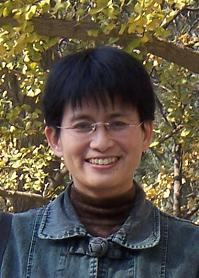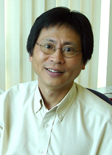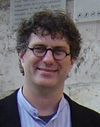 |
 |
 |
| Professor Jan Blommaert | Professor Kate Burridge | Professor Gao Yihong |
 |
 |
|
| Professor Phil Benson | Professor David C.S. Li | Dr. Andrew Moody |

Biodata:
Jan Blommaert holds a PhD in African Studies and is Finland Distinguished Professor of Linguistic Anthropology at the University of Jyväskylä (Finland), as well as Professor of Language, Culture and Globalization at Tilburg University, where he is also the director of the Babylon Center. His main publications include 'Language Ideological Debates' (Mouton de Gruyter 1999), 'Discourse: A Critical Introduction' (Cambridge University Press 2005), 'Grassroots Literacy' (Routledge 2008) and 'A Sociolinguistics of Globalization ' (Cambridge University Press 2009).
Abstract:
PUB(L)IC ENGLISH: ANOTHER LOOK AT LINGUISTIC LANDSCAPES
In this paper I will start from the notion of linguistic landscaping, and will argue that a lot of work in that tradition provides a Saussurean synchrony - a flat snapshot of something which is suggested to be representative of the communicative economy of a community. Based on observations of 'bad' public English, I will suggest that the link between a linguistic landscape and the communicative economy of a community can only be established when we, first, have a clear idea of what the public space actually means, and second, when we look at public signs as historical objects, reflecting traces of social and cultural activity that lead us intoi questions of communicative resources. Their distribution and their patterns of availability and accessibility need to be scrutinized. A linguistic landscape, in short, needs to be addressed with the full force of sociolinguistic analysis.

Biodata:
Professor Kate Burridge completed her undergraduate training in Linguistics and German at the University of Western Australia. This was followed by three years postgraduate study at the University of London. Kate completed her PhD in 1983 on syntactic change in medieval Dutch. She also taught at the Polytechnic of Central London before joining the Department of Linguistics at la Trobe University in 1984. In February, she moved to Monash University to become Professor of Linguistics. She is a fellow of the Australian Academy of Humanities.
Her main areas of research are: grammatical change in Germanic languages; the Pennsylvania German spoken by Amish / Mennonite communities in Canada; the notion of linguistic taboo; the structure and history of English. Kate also presents weekly language segments on ABC Radio and Television.
Abstract:
Swearing and taboo language in Australian English
Australians have always regarded their colloquial idiom as being a significant part of their cultural identity. The standard language is more global in nature and many Australian English speakers see their colloquialisms, nicknames, diminutives, swearing, and insults to be important indicators of their Australianness and expressions of cherished ideals such as friendliness, nonchalance, mateship, egalitarianism, and anti-authoritarianism. Australian attachment to the vernacular can be traced back to the earliest settlements of English speakers during the eighteenth and nineteenth centuries. The language of convicts and free settlers alike was largely derived from the slang and dialect vocabularies of Britain. The “vulgar” language of London and the industrial Midlands, the cant of convicts, the slang of seamen, whalers, and gold-diggers contributed significantly to the linguistic melting pot in those early years and colonial colloquialisms were an important way of fitting in and avoiding the label “stranger” or “new chum”.
This talk draws on joint research carried out with Keith Allan*. It provides an account of antipodean swearing patterns, based on examples from existing written and spoken data banks. It considers general questions to do with swearing (e.g. what it is, why speakers do it and how swearing patterns have changed over the years), as well as the shift in social attitudes toward swearing and the repercussions of this for the law. Swearing has always been characterized as an earmark of Australian (and New Zealand) English. The talk concludes that it remains an important feature of these varieties, but questions just how uniquely antipodean it is.

Biodata:
Professor GAO Yihong obtained her MA degree in linguistics from Durham University (UK) in 1983, EdM in TESOL from Boston University (USA) in 1988, and PhD in linguistics from Peking University in 1992. She is now Professor of Linguistics in the English Department of Peking University and teaches sociolinguistics, language and culture, and several other courses. Her major research interest lies in the social psychology and socio-cultural context of foreign language learning and teaching. Her publications include Culture and Foreign Language Teaching (1997, collaborated with HU Wenzhong), Foreign Language Leaning: “1+1>2” (2001), Understanding and Transcending Linguistic and Cultural Differences (2000), and The Social Psychology of English Learning by Chinese College Students Motivation and Learners' Self-Identities (2004, first author and leader of team work), and over 60 journal articles. Currently she is President of The Association of Chinese Sociolinguistics, and Vice President of China English Language Education Association.
Abstract:
Attitudes Towards World Englishes: A study on Beijing Olympic Games volunteers before and during the event
This empirical study with combined methods aimed to investigate student volunteers’ attitudes towards varieties of English and their cross-cultural awareness before and during the Beijing Olympic Games. A subjective reaction test was conducted in fall 2007, on over 200 Beijing university students enlisted as Olympic Games volunteers. The stimulation material consisted of 5 speakers’ reading of the same passage in China English, Indian English, Black American English, British English, and American English respectively. Participants rated each speaker on four categories – status, solidarity, general ability, and special ability in sports. Interviews with volunteers were conducted prior to and during the Games, and participant observation was carried out at two Games sites during the event. Quantitative results of the subjective reaction test showed that before the Games, student volunteers’ recognition of Indian English and Black American English was limited, while their ratings of General American English and British English were in general much higher than other varieties. Qualitative data analysis showed that prior to the Games, many students presented a positive attitude toward “non-native” varieties of English. Yet such positive attitude largely remained at a conscious and theoretical level, which did not well match the negative attitude projection in the subjective reaction test and elsewhere in the interviews. During the Games, through their specific experience of intercultural contact with speakers of world Englishes, student volunteers’ cross-cultural awareness increased, and their attitudes towards world Englishes seemed to move towards a more positive direction. Pedagogical implication pertaining to the cultivation of intercultural awareness is discussed.

Biodata:
Phil Benson is a Professor in the English Department at the Hong Kong Institute of Education. He began his career in English teaching in Algeria, Kuwait, Seychelles, Malaysia and Japan, and has worked in Hong Kong since 1991. He has published widely on the subject of autonomy in language learning, including the book Teaching and researching autonomy in language learning (Pearson, 2001), for which he is currently preparing a second addition, and a recent ‘State-of-the-Art’ paper in Language teaching (40:1). His current research interests include language learning histories (he is co-editor with David Nunan of the recent collection, Learners’ stories: difference and diversity in language learning - Cambridge University Press, 2005), popular culture and language learning, and language teacher education.
Abstract:
Researching autonomy in language education: key issues and research design
The idea that language education should help students become more autonomous in their language learning and language use has been with us for more that 30 years, but interest in this idea has never been greater than it is today. As this interest has grown, the ways in which we conceptualize autonomy have also become more complex and problematic. In this presentation, I will outline how the principles and practice of autonomy in language education have evolved over the past 30 years or so and identify a number of key issues that have emerged in the past decade. I will argue that these issues have emerged partly as a consequence of new ways of seeing language learners and language use, which are leading to new qualitative and biographical, approaches to research design.

Biodata:
Prof. David C.S. Li obtained his BA (English) in Hong Kong, MA (Linguistics and Applied linguistics) in France, and PhD (Linguistics) in Germany. Being a native speaker of Cantonese, he developed a keen interest in foreign language learning from a very young age. He joined Hong Kong Institute of Education in September 2008 after spending 16 fairly fruitful years at City University of Hong Kong, where his teaching assignments gradually led him to specialize in social aspects of language use in multilingual settings. He has published widely in three main areas: ‘Hongkong English’ and World Englishes, Cantonese-English code-switching (‘mixed code’), and Hong Kong Chinese EFL learners’ learning difficulties and error-correction strategies. He is currently analyzing data collected from two government-funded projects: one compares the motivations of Chinese-English code-switching in Hong Kong and Taiwan; the other investigates Hongkongers’ perception of ‘Hongkong English’ and their preferred norms and models of English (http://www.ied.edu.hk/eng/staff/academic_dcsli.htm).
Abstract:
‘Standard English plus’: Toward a truly empowering English curriculum in English-L2 societies
Using Standard English as the teaching model in English-L2 societies is the source of many learning difficulties. The standards should be broadened by examining salient lexico-grammatical deviations in learners’ English outputs to see if they could be incorporated into the local standards.
Queries about the grammatical status of lexico-grammatical deviations are typically resolved by consulting dictionaries and/or grammar books, which are clearly biased against non-native learners. Teachers have no choice but to regard such deviations as ‘errors’. This is often ineffective, however, as many errors are resilient to learner uptake despite teachers’ repeated attempts at providing remedial feedback.
Some lexico-grammatical deviations from existing standards should stop being labeled as errors and be accepted as variants in Standard English. For example:
- writing ‘everyday’ for ‘every day’
- dangling modifier
- to suggest / recommend someone to do something
- to blame on / discuss about / emphasize on / stress on something
- amount of [count noun]
- S-V inversion in wh- subordinate clauses (e.g. “I don’t know what is your preference”)
The pedagogical gain is obvious: (a) valuable class time is saved for more worthwhile teaching and learning goals; (b) NSs are made aware of NNSs’ stylistic preferences.

Biodata
Andrew Moody is Associate Professor of English at University of Macau where, in addition to teaching Sociolinguistics and Varieties of English, he is the MA Programme Coordinator. His research interests include English in Asian pop culture and the development of World Englishes in Asia. He has published chapters in books on English linguistics, sociolinguistics, and his articles have appeared in World Englishes, Asian Englishes and American Speech. He is currently preparing an edited book on Asian Pop English.
Abstract:
An Overview of Multilingualism in the Pearl River Delta: Prospects for Sociolinguistic Research in the Region
A number of factors have contributed to the development of the Pearl River Delta (PRD) as a site for contact between Chinese and non-Chinese languages, as well as contact between various Chinese languages. Historically the sociolinguistic factors that have fostered and shaped various types of multilingual interaction are mostly connected to the development of the region as a centre of economic contact with non-Chinese trading partners. Hence, the PRD as a region of contact with non-Chinese-speaking peoples is closely associated with the development of linguistic contact varieties, the most clearly identifiable of which are trade languages (e.g. Chinese Pidgin English). A number of other social factors that have promoted multilingualism within the region, however, are frequently overlooked in sociolinguistic examinations of the PRD. These include 'bottom-up factors', such immigration into or emigration out of the region, and 'top-down factors', such as the imposition of standard or standardizing language varieties from outside the region. Furthermore, various language ideologies currently threaten the maintenance of multilingualism within the region, and therefore make the Pearl River Delta one of the most interesting linguistic regions in East Asia.
